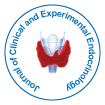Infectious Pathoetiology of Type I Diabetes and its Interventional Implications
Received: 08-Nov-2017 / Accepted Date: 10-Nov-2017 / Published Date: 17-Nov-2017
Introduction
As per the American Diabetes Association, in 2015 approximately 30.3 million (9.4%) of Americans had diabetes with 1.25 million children and adults affected by type I diabetes [1]. The recommendations for treatment of Type I Diabetes (T1D) have changed over the years, but have remained largely dependent on development of tools for blood sugar measurement and adjustment of the insulin regimens. Historically, the exact pathoetiology of type I diabetes has remained largely unknown, and genetic predisposition is thought to be one key contributor to the T1D development. Recent findings are shedding light on infection as a possible pathoetiology of T1D.
The congenital and childhood infections may be an etiology of T1D. It is hypothesized that in certain genetically predisposed individuals, persistence of an initial viral infection in pancreatic tissue can cause chronic local inflammation and activation of autoimmunity through molecular mimicry, bystander activation or both [2]. In the BABYDIET study, it was found that early childhood respiratory infections are a potential risk factor for the development of T1D [3]. In a three-year follow-up study done in human leukocyte antigen (HLA) conferred T1D susceptible children of European descent, it was found that infections occurred more often at age of 1-3 years in children who developed islet cell auto-immunity and became T1D progressors [4]. Furthermore, the children who developed islet cell auto-immunity and became T1D progressors developed infections at a younger age compared to non-diabetic children [4].
In a recent report on TEDDY study involving 7,869 new borns followed till age of 4 years and having HLA genotypes conferred T1D risk, it was found that respiratory infections which occurred in the 9- month period were associated with significant risk of islet cell autoimmunity. For each one per year rate increase in infections, the hazard ratio for islet cell autoimmunity increased by 5.6% [5]. Furthermore, respiratory infections independently associated with autoimmunity were common cold, influenza-like illness, sinusitis and laryngitis/tracheitis with influenza-like illness and sinusitis holding highest hazard ratio of 2.37 and 2.63, respectively [5]. In another large study done in Germany where infants were followed till 8 years of age, there was an association with T1D development and recurrent viral respiratory infections during the first 6 months [6]. The enterovirus (EV) infection may play a role in increasing risk of T1D development. A large systemic review and metanalysis has shown that there is a clinically significant correlation between enterovirus infection and development of T1D/auto-immunity [7]. In a Taiwanese retrospective study on children aged up to 18 years, incidence of T1D was higher in EV than in the non-EV infection cohort [8]. In Egyptian children with T1D, 26.2% had EV RNA positivity versus 0% of healthy controls [9]. Overall, larger prospective studies are needed to show age group stratified incidence of EV infection, type of EV strain involved and to draw a strong association between EV infection and T1D.
Multiple recent research studies have shown positive association between respiratory or EV infections and development of T1D making preventative interventions a key. Larger prospective studies are needed to define the types of respiratory pathogens and EV involved. Based on the findings, preventative interventions such as vaccinations, immunoglobulins and guidelines targeted to provide appropriate care of respiratory or EV pathogens can be developed. Furthermore, these preventative interventions can be used not only in children, but also in pregnant women. Overall, infections as a possible pathoetiology for T1D development opens new interventional prospects.
References
- Principi N (2017) Type 1 Diabetes and Viral Infections: What is the Relationship? J Clin Virol 96: 26-31.
- Beyerlein A (2013) Respiratory Infections in Early Life and the Development of Islet Autoimmunity in Children at Increased Type 1 Diabetes Risk: Evidence from the Baby diet Study. JAMA Pediatr 167: 800-807.
- Mustonen N (2017) Early Childhood Infections Precede Development of Beta-Cell Autoimmunity and Type 1 Diabetes in Children with HLA-Conferred Disease Risk. Pediatr Diabetes.
- Lonnrot M (2017) Respiratory Infections are Temporally Associated with Initiation of Type 1 Diabetes Autoimmunity: The TEDDY Study. Diabetologia 60: 1931-1940.
- Beyerlein A (2016) Infections in Early Life and Development of Type 1 Diabetes. JAMA 315: 1899-1901.
- Yeung WC, Rawlinson WD, Craig ME (2011) Enterovirus Infection and Type 1 Diabetes Mellitus: Systematic Review And Meta-Analysis of Observational Molecular Studies. BMJ 342: 35.
- Lin HC (2015) Enterovirus Infection is Associated with an Increased Risk of Childhood Type 1 Diabetes in Taiwan: A Nationwide Population-Based Cohort Study. Diabetologia 58: 79-86.
- Abdel-Latif M (2017) Comparative and Correlative Assessments of Cytokine, Complement and Antibody Patterns in Paediatric Type 1 Diabetes. Clin Exp Immunol 190: 110-121.
Citation: Shah P (2017) Infectious Pathoetiology of Type I Diabetes and its Interventional Implications. J Clin Exp Endocrinol 1: e104.
Copyright: © 2017 Shah P. This is an open-access article distributed under the terms of the Creative Commons Attribution License, which permits unrestricted use, distribution, and reproduction in any medium, provided the original author and source are credited.
Select your language of interest to view the total content in your interested language
Share This Article
Open Access Journals
Article Usage
- Total views: 7586
- [From(publication date): 0-2017 - Dec 01, 2025]
- Breakdown by view type
- HTML page views: 6472
- PDF downloads: 1114
